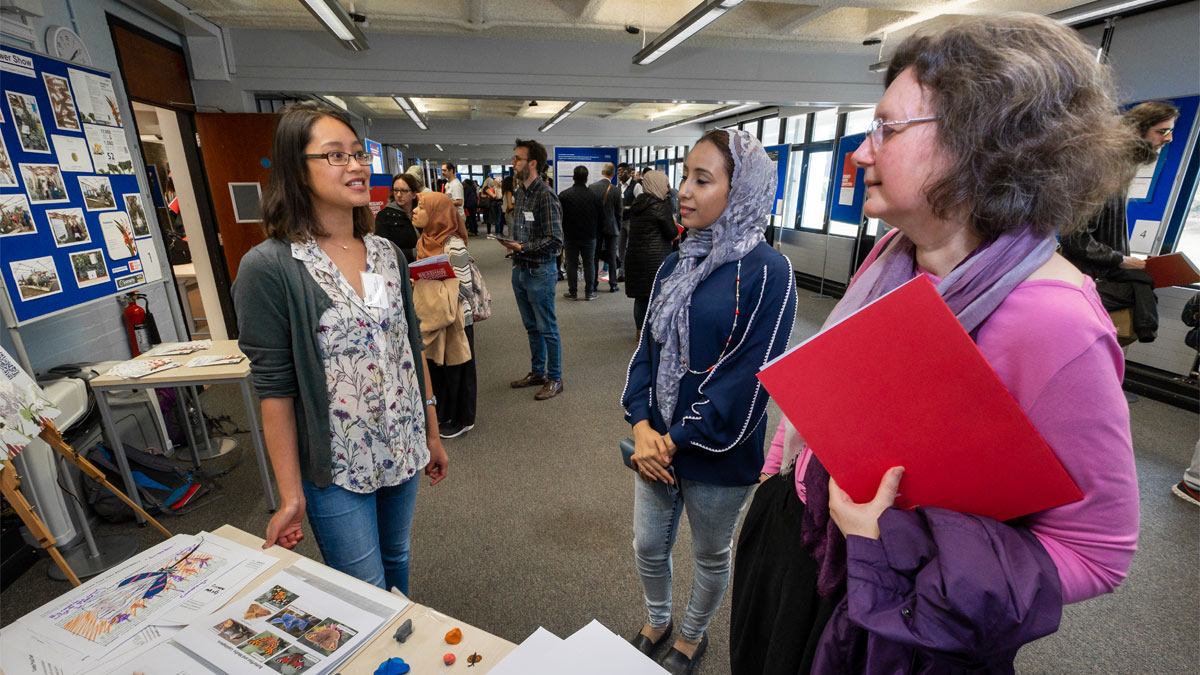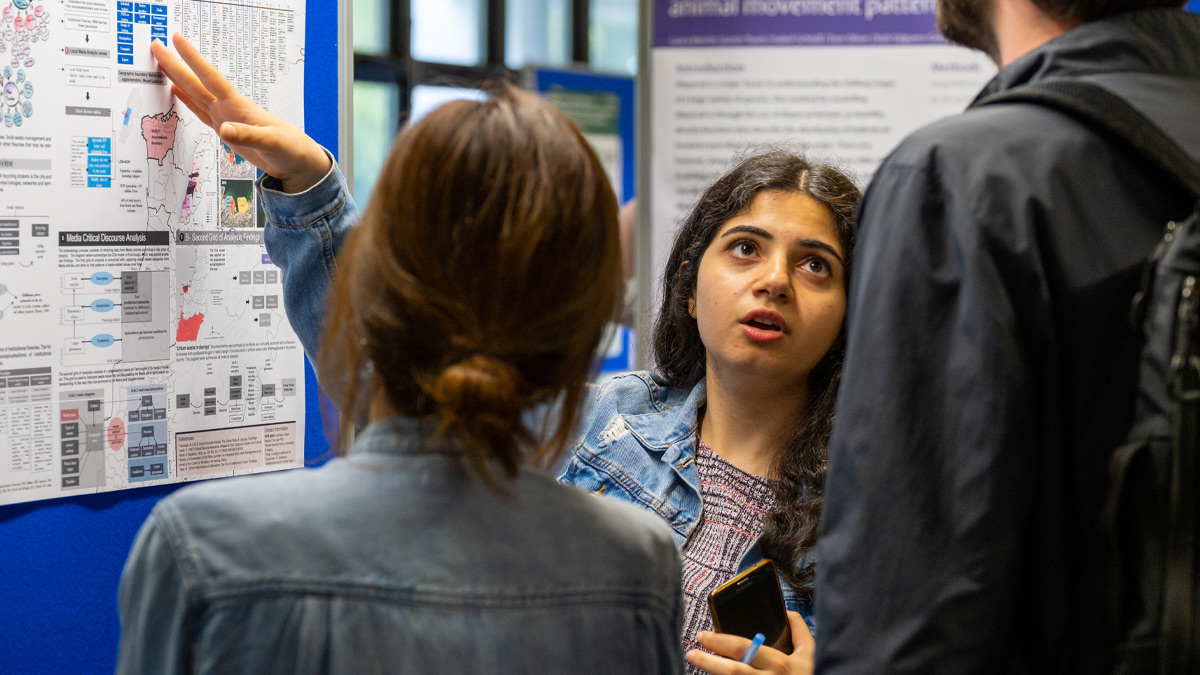Training is an intrinsic part of your development as a researcher. As part of your PhD study, you will benefit from a programme of relevant training, and have access to specialist modules agreed between you and your supervisor/s as well as attending a programme of transferable skills organised by the Doctoral and Researcher College.
You will have access to expert training on the Reading Researcher Development Programme (RRDP).
Depending on the respective funder for your PhD, further training via attendance at advanced courses, meetings and workshops may also form part of your PhD programme.
You can apply for doctoral training and studentships from:
- the NERC Climate System and Biodiversity Science CROCUS Doctoral Landscape Award (DLA)
- the NERC AI-INTERVENE Doctoral Focal Award (DFA)
- the BBSRC FoodBioSystems (DTP).
These include a wide range of opportunities for placements and training with external partners.
There are opportunities for participation on established research projects run by our experienced staff.
The University of Reading is a major centre of research and training, you can explore additional doctoral training programmes.




